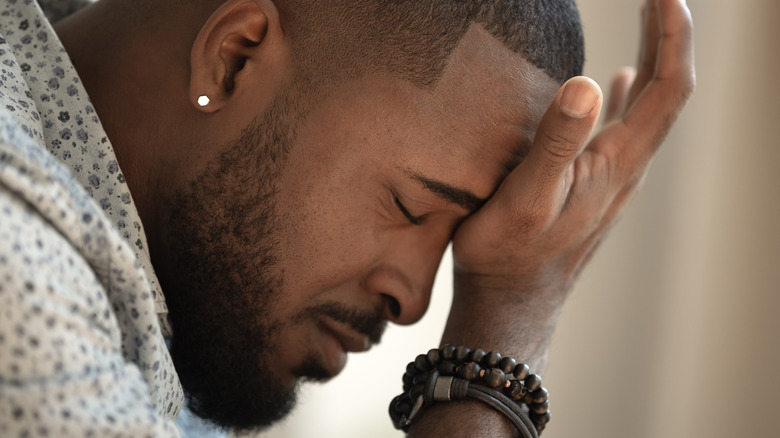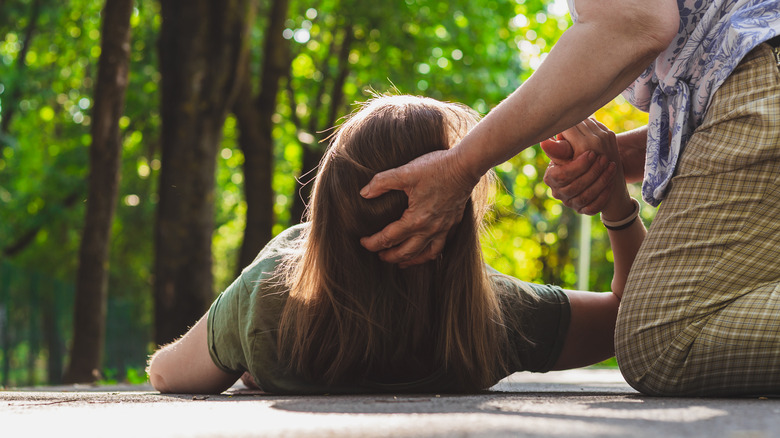The First Thing You Should Do After Bumping Your Head
A bump to the head can happen from a number of things, like falling on the ground, playing sports, or being in a car accident. While all bumps to the head are not created equal, they can be potentially damaging to the brain. This head trauma is a concussion, officially known as a traumatic brain injury (TBI), per the CDC. That said, a concussion can happen even if you don't physically hit your head, according to Hackensack Meridian Health. During intense shaking, for example, the brain is also rapidly moving around the skull, which can ultimately result in a concussion.
While people may be inclined to brush off a bump to the head, they'll want to be aware of the signs of a concussion. Common physical symptoms of a concussion can range from vomiting and headache to nausea to ringing in the ears, Mayo Clinic reports. Blurry vision and drowsiness may also occur, along with symptoms that can't be seen, such as a feeling of confusion, dizziness, or memory loss about what happened.
Given the seriousness of what may result after an external or "internal" bump to the head — no matter how small — there are steps you should take immediately after you have possibly experienced such an injury. Here's the first thing you should do.
Don't shrug off a bump to the head
Immediately look for signs of a concussion, in the moments, hours, and sometimes even days following a bump or trauma to the head. If the injury occurs while playing sports, the CDC recommends that the person be removed from playing immediately. This decision is especially critical for children. The CDC explains that "Children or teens who return to play too soon — while the brain is still healing — risk a greater chance of having a repeat concussion. Repeat or later concussions can be very serious. They can cause permanent brain damage, affecting your child for a lifetime." According to the University of Michigan Health, nearly 4 million concussions happen in the United States every year due to sports-related injuries.
Depending on how serious the injury is, the person may just rest at home or seek urgent medical attention. Concussion danger signs include (even brief) loss of consciousness, slurred speech, repeated vomiting, and headaches that worsen or won't go away. These signs warrant a trip to the ER (via CDC).

